
Best Psychopharmacology Books for Mental Health Clinicians
To demonstrate my bibliophilia, I included a picture above of my psychiatry books (I’m sure you recognize some of those). So, let’s just assume I’ve purchased and consumed the majority of the best psychopharmacology books out there. To put that knowledge to good use, I’d like to share with you which books I think offer the best information on the topic of psychiatric medications.
Must-Read
Let’s start with the must-reads. These picks go beyond typical pharmacology textbooks, in that they are targeted toward advanced readers who want to learn more than they did in Psychopharmacology 101. These books are fun and interesting, and they offer a unique perspective on the art of prescribing.
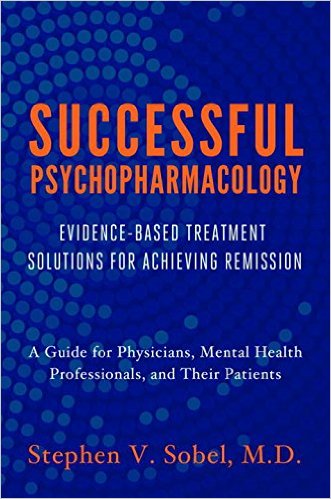 Successful Psychopharmacology by Stephen V. Sobel is a must-read, must-buy book. Just trust me. It’s why I put it first. It’s easy to understand, and it teaches you a new perspective on how to prescribe effectively and efficiently.
Successful Psychopharmacology by Stephen V. Sobel is a must-read, must-buy book. Just trust me. It’s why I put it first. It’s easy to understand, and it teaches you a new perspective on how to prescribe effectively and efficiently.
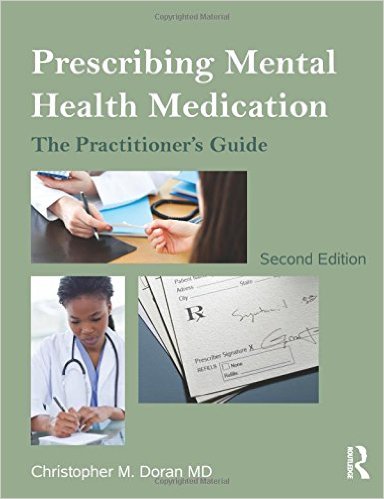 Prescribing Mental Health Medication: The Practitioner’s Guide by Christopher M. Doran covers the overall process of psychiatric medication management, from the initial interview to writing a prescription. If I could describe this book in one word, I would call it practical. As a bonus, the author is a psychiatrist, and he includes his wife Maureen O’Keefe Doran — who is an advanced-practice registered nurse — in the acknowledgments.
Prescribing Mental Health Medication: The Practitioner’s Guide by Christopher M. Doran covers the overall process of psychiatric medication management, from the initial interview to writing a prescription. If I could describe this book in one word, I would call it practical. As a bonus, the author is a psychiatrist, and he includes his wife Maureen O’Keefe Doran — who is an advanced-practice registered nurse — in the acknowledgments.
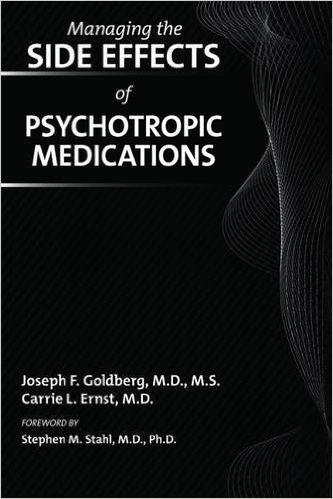 Managing the Side Effects of Psychotropic Medications by Joseph F. Goldberg and Carrie L. Ernst provides comprehensive, pragmatic information on anticipating and countering adverse drug effects when they occur. I love that it is co-written by a research psychopharmacologist and a consultation-liaison psychiatrist. As a cheesy as this sounds, this books fills a void in the literature.
Managing the Side Effects of Psychotropic Medications by Joseph F. Goldberg and Carrie L. Ernst provides comprehensive, pragmatic information on anticipating and countering adverse drug effects when they occur. I love that it is co-written by a research psychopharmacologist and a consultation-liaison psychiatrist. As a cheesy as this sounds, this books fills a void in the literature.
For Reference
Presumably, these are already on your bookshelf. If not, these books are the best-of-the-best for fundamentals and reference guides.
Stahl’s Essential Psychopharmacology by Stephen M. Stahl (aka the rockstar of psychopharmacology) is a foundational textbook covering the neurobiological mechanism of action of all psychiatric medications. The book is jam-packed with schematic drawings that make learning and understanding psychopharmacological concepts easy.
Prescriber’s Guide by Stephen M. Stahl is the reference book tied to Stahl’s textbook. Psychiatric medications are arranged in alphabetical order so you can look them up quickly. Essentially, this book puts the most important information about each drug at your fingertips.
Special Populations
I found it particularly challenging to find a psychopharmacology book that I liked for both the child/adolescent and geriatric populations. After years of searching (yes, I do mean years), I settled on these two:
Pharmacotherapy of Child and Adolescent Psychiatric Disorders by David Rosenberg and Samuel Gershon is superb. This is the pediatric book to have. It weaves pharmacology information with practical advice, and it even covers the relevant economic and political issues tied to prescribing medication to the pediatric population.
Clinical Geriatric Psychopharmacology by Carl Salzman is hands-down the best geriatric psychopharmacology text. It hasn’t been updated since 2004, but what can I do besides email the author a few times and beg for an update? This book is comprehensive and tailored specifically to the older adult population.
For the Love of It
While I do not think these books are absolutely necessary, they are absolutelyfascinating. They are reserved for the all the psychopharmacology geeks, futurists, and enthusiasts out there (pretty sure that’s all readers who have made it to this point in the article!).
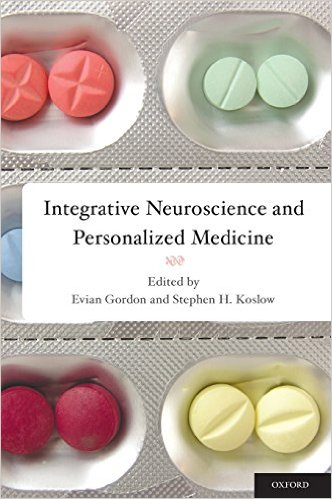 Integrative Neuroscience and Personalized Medicine by Evian Gordon and Stephen Koslow takes an in-depth look at the current status and future direction of predictive markers for treatment. While not specifically about psychopharmacology, this is a fun introduction to the future of personalized medicine, which will undoubtedly strike psychiatry.
Integrative Neuroscience and Personalized Medicine by Evian Gordon and Stephen Koslow takes an in-depth look at the current status and future direction of predictive markers for treatment. While not specifically about psychopharmacology, this is a fun introduction to the future of personalized medicine, which will undoubtedly strike psychiatry.
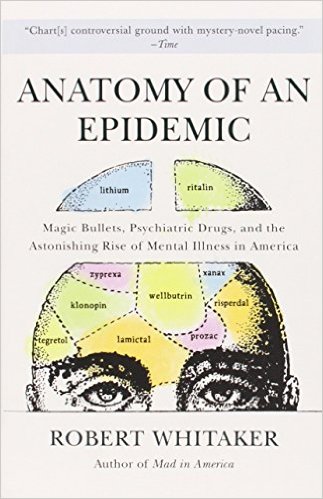 Anatomy of an Epidemic by Robert Whitaker is not for the faint of heart. Written by a journalist, this book wonders whether psychopharmacology is actually doing more harm than good. Put on your debater’s cape and be prepared to have your understanding of psychopharmacology and mental illness challenged.
Anatomy of an Epidemic by Robert Whitaker is not for the faint of heart. Written by a journalist, this book wonders whether psychopharmacology is actually doing more harm than good. Put on your debater’s cape and be prepared to have your understanding of psychopharmacology and mental illness challenged.
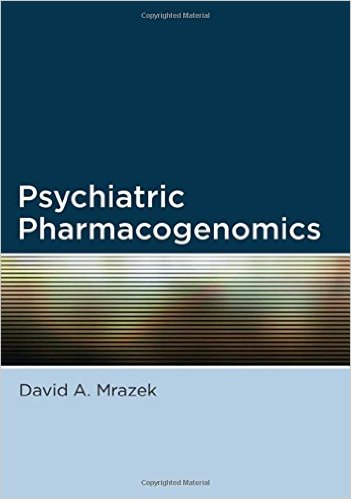 Psychiatric Pharmacogenomics by David A. Mrazek covers the fundamentals of pharmacogenomic testing and its role in improving pharmacotherapy. While this book was not exactly a light read, it used interesting clinical examples to emphasize the specific use cases for pharmacogenomic testing in psychiatry.
Psychiatric Pharmacogenomics by David A. Mrazek covers the fundamentals of pharmacogenomic testing and its role in improving pharmacotherapy. While this book was not exactly a light read, it used interesting clinical examples to emphasize the specific use cases for pharmacogenomic testing in psychiatry.
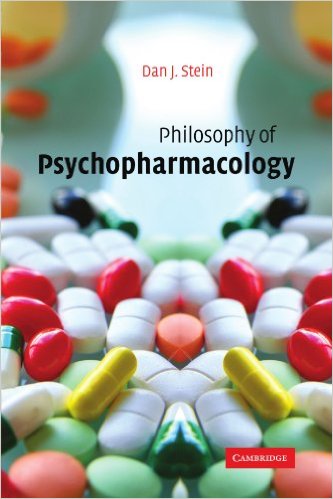 Philosophy of Psychopharmacology by Dan J. Stein was written for all the thinkers, theorists, and ethicists out there. I love it. You’ll love it. It’s both thought provoking and captivating. Put it on your birthday list.
Philosophy of Psychopharmacology by Dan J. Stein was written for all the thinkers, theorists, and ethicists out there. I love it. You’ll love it. It’s both thought provoking and captivating. Put it on your birthday list.
2 Comments on "Best Psychopharmacology Books for Mental Health Clinicians"